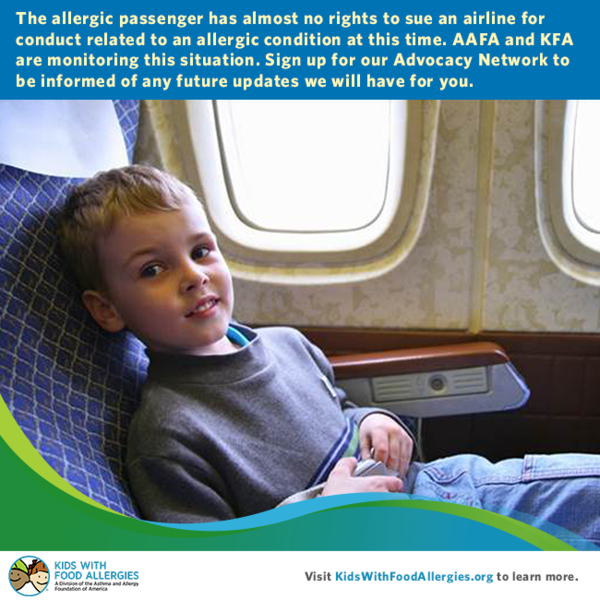UPDATE: We support a Congressional effort to improve airline safety for people with severe allergies. Join AAFA's Action Network and tell your senators you care about this issue today!
What happens if a passenger has an allergic reaction on a plane and tries to sue the airline?
For one woman, not only did a court dismiss her case, but now the airline is going after her for their legal costs. Passengers with food allergies are “up a creek without a paddle,” notes Allergy Law Project in their blog post about the case.
That’s because federal law protects airlines from such lawsuits. The law says that a state cannot “enact or enforce a law…related to price, route, or service of an air carrier.”

The woman boarded a United Airlines plane in Florida to go to Chicago in the 2011 incident. However, the crew refused to make an announcement asking passengers in the rows around her not to eat peanuts - something the airline had told her it would do. The plane made an emergency landing in another state after she had a severe reaction. Someone four rows behind her started to eat peanuts during the flight. She spent two days in intensive care.
"Unfortunately, trying to get the laws to change is a tough battle,” said Laurel Francoeur, Esq., one of the three lawyers behind the Allergy Law Project.
Laurel did a webinar for Kids With Food Allergies last year about flying with food allergies.
The only option for concerned flyers with food allergies right now is to contact their representative in Congress and ask for changes to the Airline Deregulation Act and the Air Carrier Access Act. Those are the laws that make it next-to-impossible for a passenger to hold an airline liable for food allergy issues (or other disability issues) while aboard a flight.
Kids With Food Allergies and the Asthma and Allergy Foundation of America are monitoring this issue and will update you as we learn more. Please sign up for our Advocacy Network and we will keep you informed.


Comments (8)